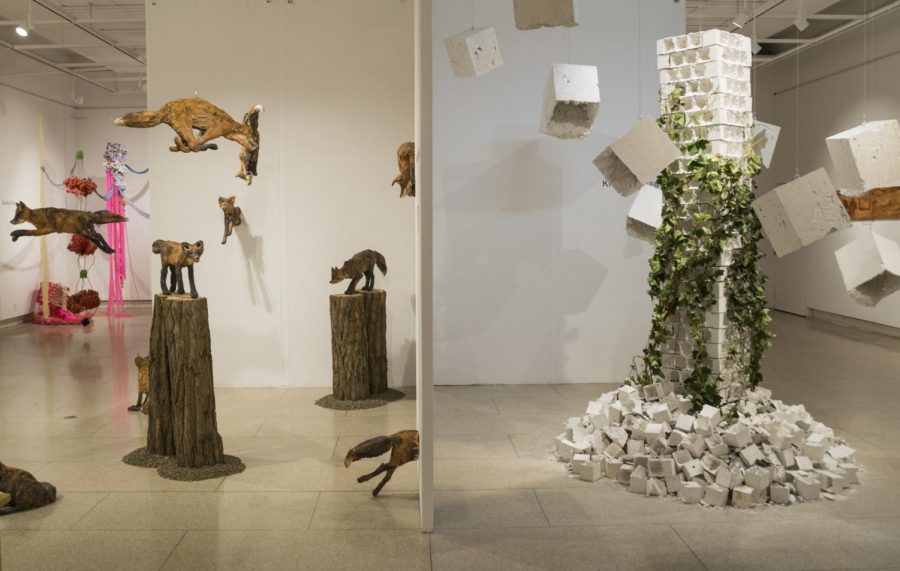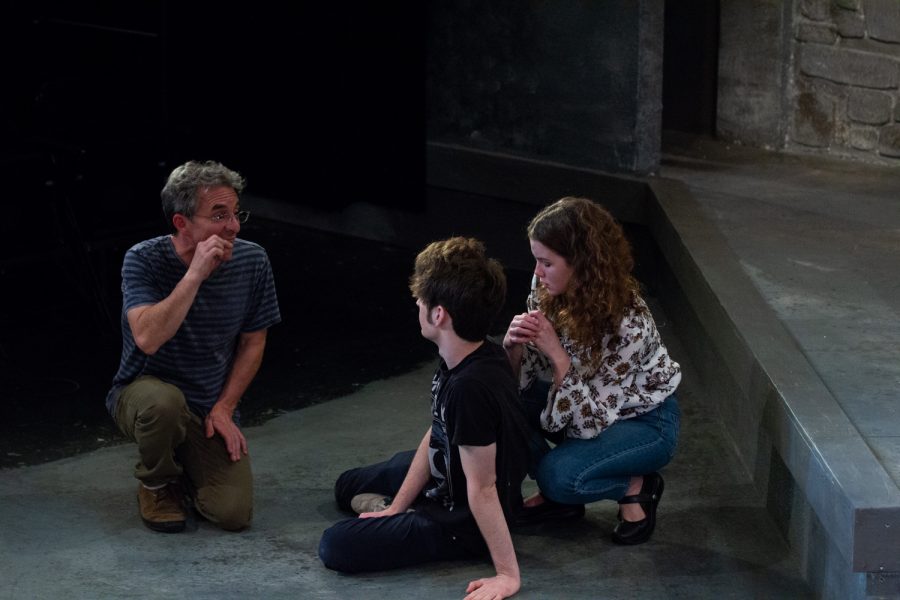
Many Whitman College students live with the expectation that they will do whatever they can to earn the ‘terminal degree’ in their field. Whitman seniors pursuing careers in the arts, however, must face the more complex realities within their fields in deciding whether and when to go on to graduate school.
Whitman professors are expected to teach as well as practice in their own fields at exceptional levels. Most also carefully evaluate the state of their art. Students pursuing theater, music, visual arts, creative writing or dance might not be surprised to learn from professors that they may end up having to choose between honing their artistic skills and being successful as a professional artist. Graduate study, however, does not line up squarely on one side or the other of this coin.
For music, graduate study can help in both respects. Its value for Adjunct Assistant Professor of Music Danielle Warner lies mostly in increasing the artistry and knowledge of musicians, especially ones for whom music is a passion.
“To have the opportunity to study your passion at a graduate level can only enhance your depth of knowledge in a given subject and increase your awareness of the world and your place in it,” she said. “I hope everyone gets to continue learning after attending undergraduate classes.”
There are additional perks to graduate study for many artists. While some students enroll to improve their craft, some do so in search of a fertile artistic community and environment. Others go to network and further their careers, and some even go, oddly, to save time in their artistic productivity.
The first thing Scott Elliot, associate professor of creative writing and English, asks students who tell him they are considering graduate school is whether they are sure they really want to write : if it feels like “a calling.”
“A gift [going to graduate school] can give you is it can save you time. [You may be able to accomplish there] what might take you 10 years otherwise,” he said.
Another medium in which graduate school is viewed positively is the visual arts, where an MFA is the norm. Justin Lincoln, assistant professor of new genres and digital art, points out that how a field which seeks the non-normalized and non-standardized also has a standardized qualification is a complication that causes many exceptions.
“One of the things that colleges do, in my opinion, is help set up a theoretical framework for what people do. They problematize things. One of the biggest bones of contention in art schools is how to strike the balance between theory and practice,” said Lincoln.
That contention speaks to the other side of the grad school debate: the notion that being an artist is not synonymous with having an MFA.
“Having an MFA is not a sure ticket to the art world, nor is not having the MFA going to preclude that. It’s just one type of portal,” said Lincoln.
Succeeding in the performing arts highlights even more forcefully the break between theory and practice. Real-world experience factors into performing arts in a way that makes foregoing graduate school, or taking time off before going, an option worth considering.
“I think students come to college and they work in these programs and they have an idea of what [their field] is, but in the real world it’s a very different thing,” said Associate Professor of Theater Christopher Petit. “When you go audition for a part, for example, nobody cares what graduate school you went to. They care about whether you can do it, and if they think you can do it then they’ll give you the part.”
Adjunct Instructor of Dance Vicki Lloid holds a similar opinion.
“In my day, dancers almost didn’t even go for BAs; the idea was [that dancing professionally] was where the ‘learning’ and ‘experience’ and so forth existed,” she said. “The ‘academization’ of dance is fairly recent, and I still wonder if it’s the right choice for those wanting a professional performance career.”
The debate comes down to getting the most out of whichever mode of experience students decide to engage in.
“You can do almost anything across the spectrum as long as you’re paying close attention to what you’re doing; making yourself a person on whom nothing is lost,” said Elliot. “And as long as you have a place to put [that experience].”










